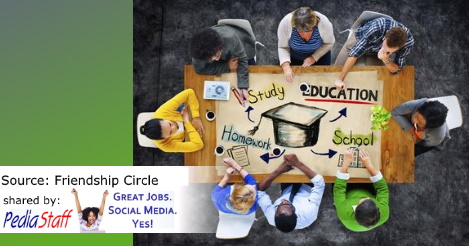Special Ed Corner: 10 Helpful and Compassionate Comments Heard at an IEP Meeting

[Source: Friendship Circle]
During most discussions about IEPs, we talk about the times that things went wrong and disgraceful things were said. But not all IEPs are like that! Recently a commenter on the Friendship Circle blog wrote, “Instead of ridiculous and offensive comments, why don’t you write about helpful and compassionate things heard at an IEP meeting?”
After a few rough years and three different school districts, I have developed a good working relationship with my son’s IEP team. My son does not receive 100% of the services that I request for him, but he is receiving an excellent education and is fully included in general education for most of the school day.
Over the years, many helpful and compassionate comments have stuck with me. Here is a sample of supportive comments that have been spoken to me as a parent, but I should note that I also make it a point to express my appreciation to the team as well. IEP support isn’t just a 2-way street: it’s a busy construction site with administrators, educators, parents and the student all interacting and choosing to build the future together.
1. “Your child has so many strengths – what would you like to add to the list?”
This question comes at the beginning of the IEP and really sets the tone for the whole meeting.
2. “This IEP is designed to consider the needs of the whole child, and we value your input at every step.”
I heard this comment right after I moved out of a negative situation in another school district, and I was relieved to be treated with respect as a valued team member. This comment should be made at every IEP.
Read More at Friendship Circle.com
PediaStaff is Hiring!
All JobsPediaStaff hires pediatric and school-based professionals nationwide for contract assignments of 2 to 12 months. We also help clinics, hospitals, schools, and home health agencies to find and hire these professionals directly. We work with Speech-Language Pathologists, Occupational and Physical Therapists, School Psychologists, and others in pediatric therapy and education.
